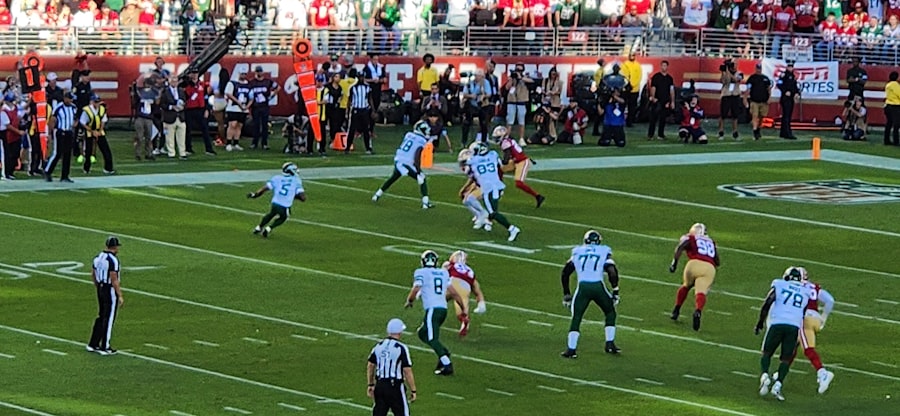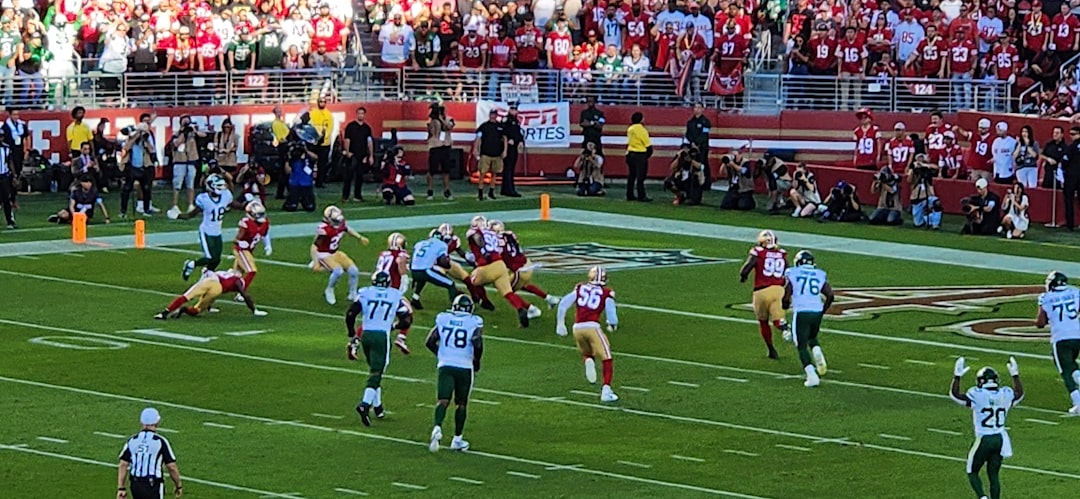The intricate web of American defense is often shrouded in secrecy, a hidden system that operates behind the scenes to protect national interests. This clandestine framework encompasses a variety of elements, from classified programs to covert operations, all designed to ensure the safety and security of the nation. While the public may be aware of the visible aspects of military and defense strategies, such as conventional forces and public military engagements, the true depth of American defense lies in its hidden mechanisms.
These elements work in concert to create a robust defense posture that is both proactive and reactive, capable of addressing threats that may not be immediately apparent. Understanding this hidden system requires delving into the various components that contribute to its effectiveness. The complexity of national security is not merely a function of military might; it also involves intelligence gathering, technological advancements, and strategic planning.
As global threats evolve, so too does the need for a sophisticated defense apparatus that can operate in the shadows. This article will explore the multifaceted nature of American defense, examining the roles of classified programs, secret military bases, intelligence agencies, special operations forces, cyber warfare, private military contractors, and the implications of black budgets. Each of these elements plays a crucial role in maintaining national security while navigating the delicate balance between secrecy and accountability.
Key Takeaways
- The hidden system of American defense plays a crucial role in national security, utilizing classified programs, secret military bases, and covert operations.
- Intelligence agencies are heavily involved in covert operations, using their expertise to gather information and carry out secret missions.
- Special operations forces are utilized in secret missions, leveraging their specialized training and skills to execute covert operations.
- Cyber warfare has become a significant component of national defense, with the use of technology to protect and defend against threats in the digital realm.
- Private military contractors play a role in covert operations, providing specialized services and expertise to support the hidden system of American defense.
The Role of Classified Programs in National Security
Classified programs are a cornerstone of American national security, providing the government with critical capabilities that are often kept from public scrutiny. These programs encompass a wide range of activities, including advanced research and development projects, intelligence gathering initiatives, and experimental technologies. By keeping these programs classified, the government can protect sensitive information from adversaries who might seek to exploit it.
This secrecy allows for innovation in defense technologies that can give the United States a strategic advantage on the global stage. Moreover, classified programs often serve as a deterrent against potential threats. The mere existence of advanced capabilities—whether they be in cyber warfare, missile defense systems, or surveillance technologies—can dissuade adversaries from engaging in hostile actions.
The knowledge that certain operations or technologies are beyond public knowledge can create uncertainty among potential aggressors, thereby enhancing national security. However, this reliance on secrecy also raises questions about oversight and accountability, as the public remains largely unaware of how taxpayer dollars are being utilized in these classified endeavors.
The Importance of Secret Military Bases

Secret military bases play a pivotal role in the hidden system of American defense. These installations are often located in remote areas or disguised as civilian facilities, allowing for operations that require a high degree of confidentiality. The strategic placement of these bases enables the U.S.
military to conduct training exercises, intelligence operations, and even launch missions without drawing attention to their activities. Such secrecy is essential for maintaining operational security and ensuring that adversaries cannot anticipate U.S. actions.
In addition to their operational advantages, secret military bases also serve as hubs for collaboration with allied nations and intelligence agencies. These locations often facilitate joint exercises and training programs that enhance interoperability among forces. The ability to conduct operations from undisclosed locations allows for greater flexibility in responding to emerging threats while minimizing risks to personnel and assets.
However, the existence of these bases can also lead to tensions with host nations or local populations who may be unaware of their presence or purpose.
The Role of Intelligence Agencies in Covert Operations
| Intelligence Agency | Covert Operations | Success Rate |
|---|---|---|
| CIA | Assassinations, Sabotage, Espionage | Varies |
| MI6 | Covert Influence, Counter-terrorism | Varies |
| MOSSAD | Targeted Killings, Cyber Warfare | Varies |
Intelligence agencies are integral to the execution of covert operations within the hidden system of American defense. Organizations such as the Central Intelligence Agency (CIA) and the National Security Agency (NSA) are tasked with gathering and analyzing information that informs national security decisions. Their work often involves clandestine activities aimed at disrupting threats before they materialize.
This can include everything from espionage to cyber operations designed to undermine adversaries’ capabilities. The effectiveness of intelligence agencies hinges on their ability to operate discreetly while maintaining a network of informants and assets around the world. These agencies often collaborate with military forces to execute missions that require both intelligence gathering and tactical execution.
The synergy between intelligence and military operations enhances the overall effectiveness of U.S. defense strategies, allowing for rapid responses to evolving threats. However, the secretive nature of these operations raises ethical concerns regarding accountability and transparency in government actions.
The Use of Special Operations Forces in Secret Missions
Special Operations Forces (SOF) are elite military units trained to conduct high-stakes missions that often require a level of secrecy not afforded to conventional forces. These units are adept at operating in hostile environments and executing complex operations that may include counterterrorism, hostage rescue, and reconnaissance missions. Their training emphasizes adaptability and stealth, making them invaluable assets in situations where traditional military approaches may be insufficient.
The use of SOF in secret missions underscores the importance of precision and discretion in modern warfare. These forces often work alongside intelligence agencies to gather real-time information that informs their actions on the ground. The ability to conduct operations without revealing U.
involvement is crucial for maintaining strategic advantages and minimizing backlash from international communities. However, the reliance on SOF for covert operations also raises questions about the long-term implications of such actions on foreign relations and global stability.
The Role of Cyber Warfare in National Defense

In an increasingly digital world, cyber warfare has emerged as a critical component of national defense strategies. The ability to conduct offensive and defensive operations in cyberspace allows the United States to protect its critical infrastructure while simultaneously disrupting adversaries’ capabilities. Cyber warfare encompasses a range of activities, from hacking into enemy systems to launching disinformation campaigns aimed at destabilizing opponents.
The clandestine nature of cyber operations aligns closely with the principles of covert action, as many activities can be conducted without direct attribution to the U.S. government. This ambiguity provides strategic advantages but also complicates international norms regarding warfare and state behavior in cyberspace.
As cyber threats continue to evolve, so too must the strategies employed by American defense entities to safeguard national interests while navigating the complexities of digital engagement.
The Role of Private Military Contractors in Covert Operations
Private military contractors (PMCs) have become increasingly prominent in modern warfare, often filling roles traditionally held by military personnel. These contractors provide specialized skills and services that can enhance operational capabilities during covert missions. Their involvement allows for greater flexibility in deploying resources without committing large numbers of troops or drawing public attention to military engagements.
The use of PMCs raises important questions about accountability and oversight within covert operations. While they can offer expertise and efficiency, their presence blurs the lines between military action and private enterprise. This dynamic can complicate legal frameworks governing warfare and raise ethical concerns regarding the use of mercenaries in conflict zones.
As PMCs continue to play a role in American defense strategies, it becomes essential to establish clear guidelines that ensure accountability while leveraging their unique capabilities.
The Impact of Black Budgets on Defense Spending
Black budgets—funds allocated for classified programs—represent a significant aspect of American defense spending that remains largely opaque to the public eye. These budgets allow for financing initiatives that are deemed sensitive or critical to national security without disclosing specific details about their use. While this approach enables innovation and rapid response capabilities, it also raises concerns about fiscal responsibility and oversight.
The existence of black budgets can lead to inefficiencies within defense spending as resources may be allocated without sufficient scrutiny or accountability measures in place. Additionally, the lack of transparency surrounding these funds can foster distrust among citizens who may question how their tax dollars are being utilized in secretive programs. Striking a balance between necessary secrecy for national security purposes and ensuring responsible governance is an ongoing challenge for policymakers.
The Ethical and Legal Implications of Covert Operations
Covert operations present a complex landscape filled with ethical and legal dilemmas that challenge traditional notions of warfare and statecraft. While these operations are often justified as necessary for national security, they can lead to unintended consequences that impact civilian populations and international relations. The lack of transparency surrounding such actions complicates efforts to hold governments accountable for their decisions.
Legal frameworks governing covert operations are often ambiguous, leading to debates about their legitimacy under international law. Questions arise regarding sovereignty violations when conducting operations within foreign territories without consent or oversight from host nations. As global norms evolve regarding state behavior in conflict situations, it becomes increasingly important for governments to navigate these ethical waters carefully while ensuring that national security objectives are met.
The Future of the Hidden System of American Defense
As global dynamics shift and new threats emerge, the hidden system of American defense will likely continue evolving to meet these challenges head-on. Advances in technology will play a crucial role in shaping future strategies, particularly as artificial intelligence and machine learning become integral components of military operations and intelligence gathering efforts. The ability to harness these technologies effectively will determine how well the United States can adapt its defense posture in an increasingly complex world.
Moreover, as public awareness grows regarding issues related to transparency and accountability within national security frameworks, there may be increased pressure on government entities to provide greater insight into their operations without compromising sensitive information. Balancing national security needs with demands for transparency will be essential for maintaining public trust while ensuring that America remains prepared to address emerging threats effectively.
The Balance Between National Security and Transparency
In conclusion, the hidden system of American defense represents a multifaceted approach to safeguarding national interests through a combination of classified programs, secret military bases, intelligence operations, special forces engagements, cyber warfare initiatives, private contractors’ involvement, and black budgets. While these elements are crucial for maintaining security in an unpredictable world, they also raise significant ethical and legal questions regarding accountability and oversight.
The future will demand innovative solutions that respect both the need for secrecy in certain operations while ensuring that democratic principles guide decision-making processes within national defense frameworks. Ultimately, navigating this delicate balance will define how effectively America can respond to evolving threats while upholding its values on the global stage.
In exploring the intricate and often concealed mechanisms of the American defense system, one might find it beneficial to delve into related discussions that shed light on the broader geopolitical landscape. An insightful resource that complements this topic is an article available on MyGeoQuest, which provides a comprehensive overview of strategic defense initiatives and their global implications. For those interested in further understanding these complex dynamics, you can read more about it by visiting this related article. This piece offers valuable perspectives that enhance our comprehension of the hidden layers within the American defense framework.
WATCH THIS! The Hidden Reason No One Can Invade America | A Geographical Analysis
FAQs
What is the hidden system of American defense?
The hidden system of American defense refers to the network of classified military and intelligence capabilities that are not publicly disclosed or widely known. This includes covert operations, secret military technologies, and undisclosed defense strategies.
Why is there a hidden system of American defense?
The United States maintains a hidden system of defense to protect sensitive information, maintain a strategic advantage over adversaries, and carry out covert operations without public knowledge. This allows the U.S. to respond to threats and protect national security interests without revealing all of its capabilities to potential enemies.
What are some examples of the hidden system of American defense?
Examples of the hidden system of American defense include classified military technologies such as stealth aircraft and advanced weaponry, covert operations conducted by intelligence agencies, and undisclosed defense strategies for responding to various threats around the world.
How is the hidden system of American defense funded?
The hidden system of American defense is funded through the classified budget of the Department of Defense and other intelligence agencies. This funding is not publicly disclosed and is used to support the development and operation of classified military and intelligence capabilities.
Who has oversight of the hidden system of American defense?
Oversight of the hidden system of American defense falls under the purview of congressional intelligence committees and other oversight bodies within the U.S. government. These committees are responsible for ensuring that classified defense activities are conducted in accordance with the law and in the best interests of national security.
